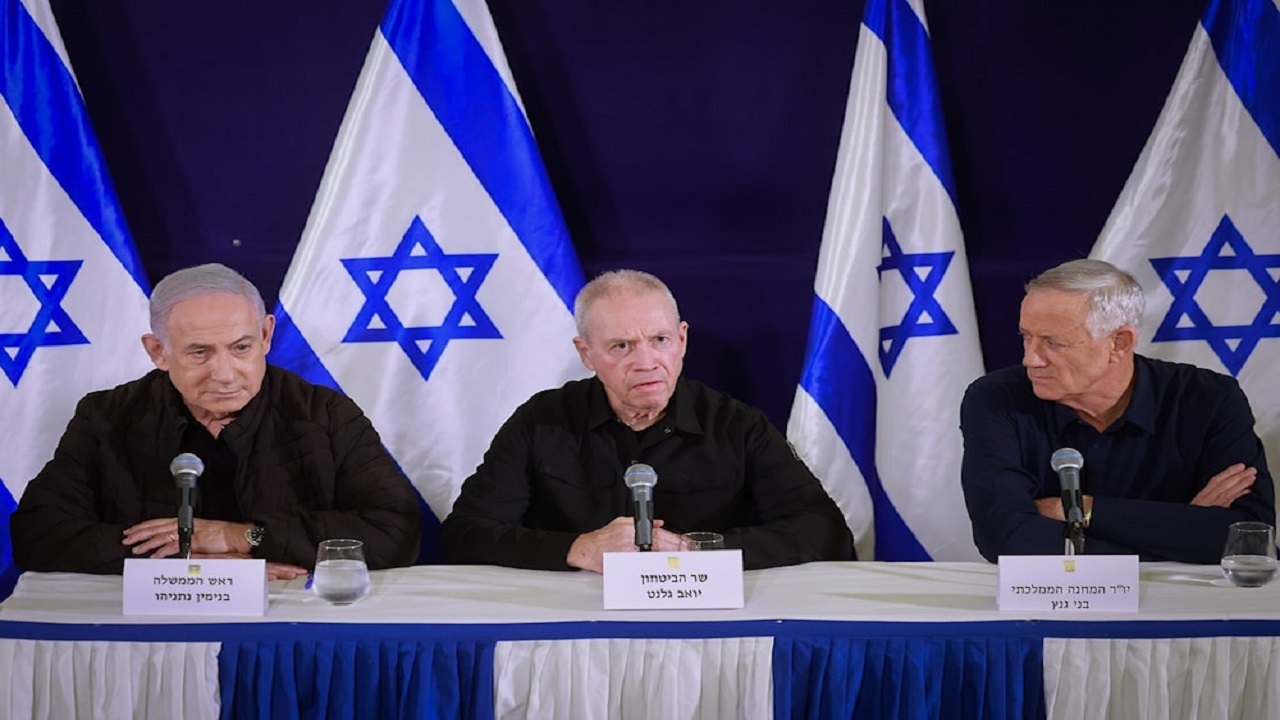Beyond the war, “dangerous challenges” have also emerged within the Zionist regime in various fields, and more than ever, failure in the war and beyond threatens the existence of the regime. Still, the severe media censorship governing the Occupied Territories prevents its reflection to a great extent.
Differences between the military, security, and political sectors are among the challenges in this field to such an extent that parallel to the prolongation of the war in Gaza, the intensity of internal differences in the decision-making system and Netanyahu’s cabinet will also increase. As such, today, all the military and operational calculations of the Zionist regime in Gaza have been faced with “serious doubts.” The only thing that the world has witnessed so far is the blind bombings of the Zionist regime and the killing of civilians, and on the other hand, the Resistance of the Palestinians and the heavy losses of the Zionists.
In this regard, the daily “Yedioth Ahronoth” not long ago published a note in which it wrote a few weeks after the war, Benjamin Netanyahu, the Prime Minister of Israel, is not still awake, and his cabinet is now being managed without a clear and specified strategy’ and in a part of the note it has been emphasized that ‘the management of Netanyahu’s cabinet is bad. There is almost no leadership in it!’
The difference between the small cabinet (cabinet of war) and the large cabinet (Netanyahu’s government) has different dimensions. The two sides disagree on everything related to the war, including military plans, assessments, maps, decisions, how to conduct the war, its outlook, and what will happen in the future. In such a way that the “distrust crisis” between Netanyahu and the army, which already existed, has intensified.
For example, “Herzi Halevi,” the Chief of General Staff of the Zionist Army, has assessed the situation in the Gaza Strip and has presented plans for the continuation of attacks and ground operations in southern Gaza, but Netanyahu has opposed the development of ground operations in southern Gaza at the present juncture.
The Hebrew channel “KAN” has also recently revealed that the chiefs of the army general staff, the intelligence agency “Mossad” and the internal security organization known as “Shabak” left the limited security and political cabinet meeting before it ended.
In addition to the differences between the heads of the military and security agencies and members of the cabinet, the members of this cabinet are also in disagreement with each other, so that in the meeting of the cabinet a few days ago, Gadi Eisenkot, the former chief of staff of the Israeli army, demanded information about the state of the army (in the Gaza war). Still, the Minister of Internal Security, Ben Guer, jumped in the middle of his words, and then the meeting went into a convulsion!
The next issue is the severe internal disputes, until recent days, over the ceasefire and the exchange of prisoners; Benny Gantz and Gadi Eisenkot, two members of the “main” camp fraction, believed that “Israel” is obliged to rescue the prisoners who can be rescued immediately. On the other hand, Gallant and Holloway and a number of army and Shabak commanders claimed that a ceasefire is currently prohibited and military pressure on Hamas should be intensified.
The noteworthy point is that Netanyahu avoids taking a definite position on those differences for various reasons, including political considerations. Netanyahu, who is known as “responsible for the war” and according to domestic, regional, and international public opinion and even some Western partners, is caught in a “difficult predicament” and is cautious with any plan that he sees as a threat to his position and political future and sometimes opposes it. Unaware that for Netanyahu, there is no escape from the fact that he will suffer “political death” soon.
Definitely, with the end of the Gaza war, we will witness the emergence of new challenges at the two levels of “structural” and “brokerage” in the Zionist regime, of which Netanyahu will be the biggest victim.
On the other hand, the tension and internal differences in the Zionist regime have caused the calculations of the army, which is the “main pillar” of the Zionist regime, to be messed up. This situation, besides causing severe “confusion” within the military and security forces of the Zionist regime, psychologically, will gradually cause a sharp drop and loss of motivation and spirit of war among the Zionist forces.
Currently, the most important elements within the Zionist regime who are interested in the continuation of the war and its attrition are Netanyahu and his affiliated extremist elements inside and outside the cabinet. Because, according to them, especially Netanyahu, the prolonged war in Gaza is currently making him immune to political protests and his survival in power. But the matter is not that simple. Indeed, the continuation of the war in Gaza, which is now becoming one of the “longest” wars of Israel in the past 75 years, will cause the emergence of problems and “difficult crises” within the Israeli regime.
Neither the army nor the public opinion, nor the economic infrastructure, etc., the Israeli regime cannot tolerate a long-term war. At present, more than 75 percent of the residents of the Occupied Territories believe that Netanyahu is responsible for the failure to “protect the settlements around Gaza” as well as Israeli citizens, and he should be held accountable for it.
This is despite the fact that the resistance of the Resistance fighters so far, on the one hand, the spread of threats against Israel’s interests in the region, which we can see in the recent movements of Ansarollah, on the other hand, and finally the internal differences in the Zionist regime, which are increasing every day, will practically make it challenging to continue the war in Gaza.










0 Comments